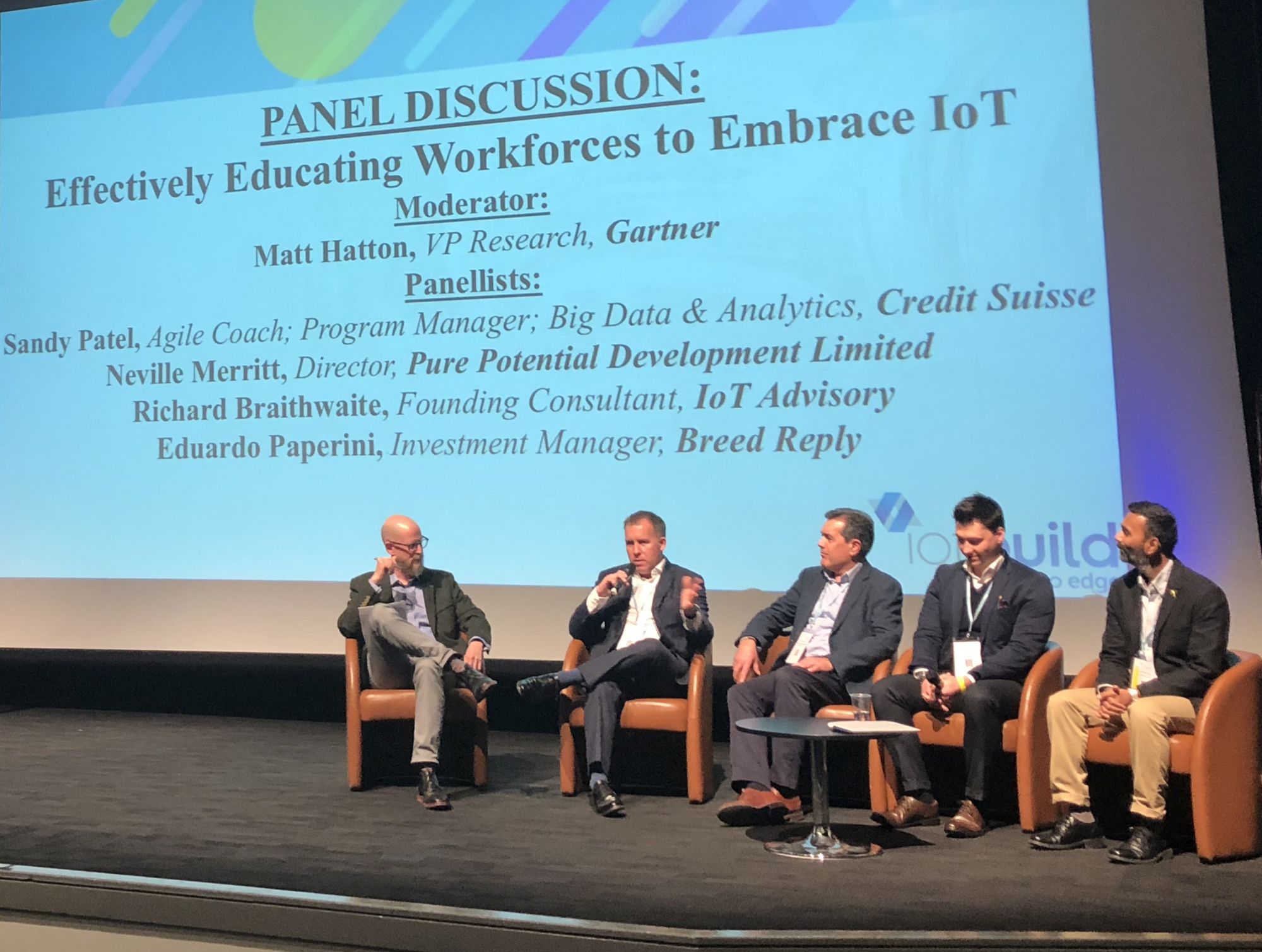
I was flattered to be included in the list of “Thought Leaders” at the IoT-Build (Internet of Things) Conference this week, and invited to join the panel to discuss skills and training needs for the workplace. Chaired by Matt Hatton of Gartner, we had an interesting and wide-ranging discussion on the changing skills required, which in turn is impacted by our education system, social and business cultures and even politics.
As often happens in these panels, the discussion carries on in your head after the formal proceedings are over and I was reminded of Dr James Bellini, a “historian of the future” who very cleverly transposes past cultural and technical changes onto the current situation.
He recommended a book “The Victorian Internet” by Tom Standage which chronicled the introduction of the telegraph system in the 19th century, triggering major commercial and cultural changes. This was the first time that information could be transferred faster than a human being could travel, because up to that point information exchange was based on horse, ship and train speeds. It resulted in the transformation of the news industry, the introduction of a workable stock exchange and many other social changes.
Dr Bellini did not consider the Internet to be much of a game-changer. It was just a larger computer network with more access than we had previously. It was still connected with cables. Instead, he proposed that mobile computing was the game changer where for the first time we did not need to be tethered to a network with physical cables. This gave much more opportunities for applications which in turn have enabled dramatic and rapid social and business changes.
Having reflected on our panel discussion, I now believe we are entering into another game-changing technology era which is bigger than the technology itself. IoT now means that for the first time, information can be collected, processed and used without any involvement with humans. Just as the telegraph untethered the speed of information, IoT will untether the dependence on humans which means we have removed a significant barrier to possibilities.
The early adopters of the telegraph could never have imagined the opportunities it would create and I suspect that we have only glimpsed the tip of what is now possible with IoT. If you add in mobile, Artificial Intelligence and miniaturisation, we are in a very exciting place.
Matt Hatton summed up our panel discussion concluding that there will be a significant demand for non-technical skills to further the adoption and use of IoT. These include creativity, adaptability, change management and other behavioural aspects because the limit to possibility is not technology, it is us. Humans.
My thanks to IoT-Build, Matt Hatton and my fellow panellists Richard Braithwaite of IoT Advisory, Sandy Patel of Credit Suisse and Ed Paperini of Breed Reply for a very interesting discussion.
Neville Merritt
